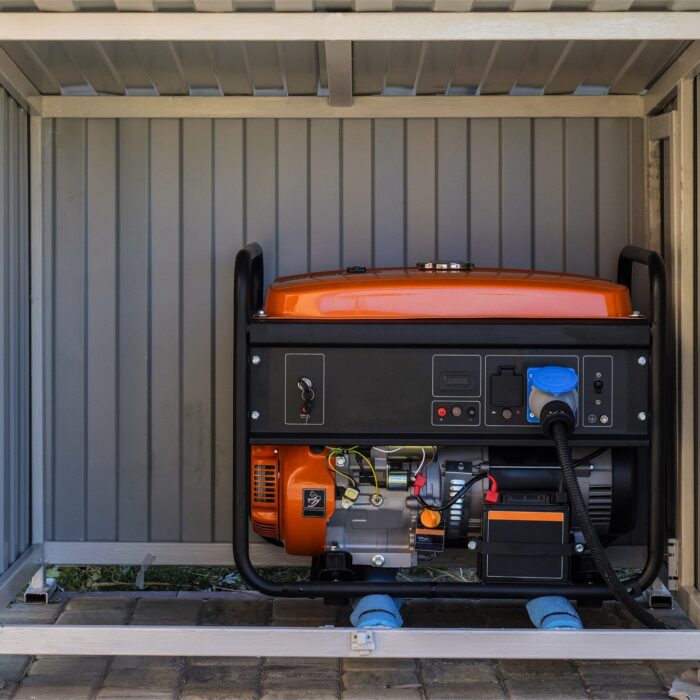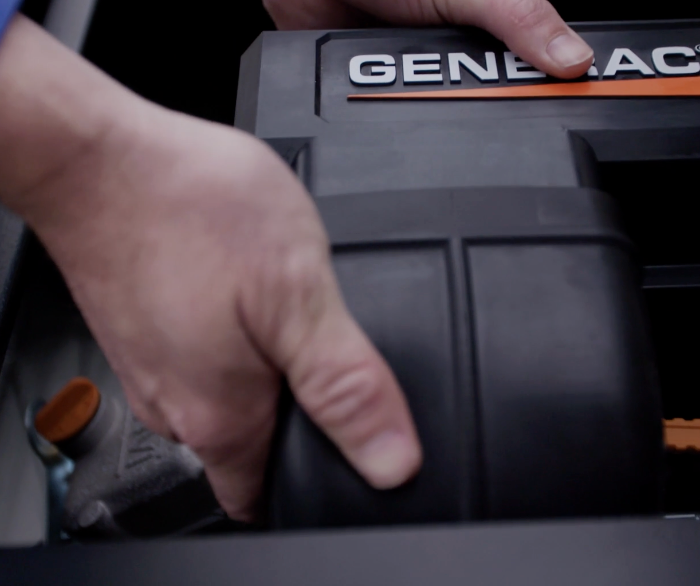From severe storms to car accidents to supplier errors and more, there are all sorts of factors that can lead to power outages. Fortunately, there’s a machine that can keep your home powered, even when the electrical grid has been compromised. This machine is, of course, a generator.
The question, however, is what size standby generator is needed to power your home. That’s where this article comes in. Below, we’re going to discuss generator sizing, helping you find the perfect generator for your residence. Let’s get into the many aspects of buying a generator.
Factors That Affect Generator Size
There are a number of factors that affect the size of generator that a home requires. These factors include the following:
The Size of the Home
Put simply, the larger the home, the larger generator you’ll need. This is because larger homes have more electrical circuitry, more electrical fixtures, and more electrical entities to power.
The Number of Appliances in the Home
It’s not just the size of the home that matters but the number of appliances being powered in the home as well. So, if you have two kitchens, each containing the same number of appliances, you’re going to need a lot more power than if you only had one kitchen. This commands a larger generator.
The Size of the HVAC System
Of all the electricity-driven entities in a home, the one that uses the most electricity is far and away the HVAC system. This is why, when choosing an appropriate whole home generator, you need to take your HVAC system’s size into account.
HVAC systems are measured in tonnage, with most HVAC systems coming in at between 2 and 4 tons. Make sure to read the description on your HVAC system so that you know just how much energy it’s using.
Power Outage Frequency
Power outage frequency makes a difference as well. The more frequent and more intense the outages, the more reliable and powerful you need your generators to be.
Those who are in the path of seasonal tropical storms and hurricanes should utilize either large inverter generators or home standby generators.
Determining Power Needs
The key to choosing the right generator is to determine your home’s power needs and then find a generator capable of accommodating them. First, you need to decide which appliances you’ll use during emergency outages. You could use a generator to power every appliance in your house; on the other hand, you could opt to use only the bare necessities, such as refrigerators, lights, and ovens.
The choice is ultimately up to you. Fortunately, you are not alone as Generator Supercenter is here to help you make this decision before making a generator purchase.
Once you’ve decided, go through your home and find out the wattage of each appliance you plan on using during outages. Add these wattages up until you have a total wattage. This is how much wattage you’ll need your generator to provide.
That said, you should play it a little safe by ensuring that your generator has more than enough power to meet your needs. To ensure this, multiply your total wattage by 1.25. The product of this is how much wattage you need your generator to provide.
Note that generators don’t always provide their power capabilities in wattage. Sometimes, they provide it in kilowatts. Other times, they provide it in amps, volts, or volt-amps.
If this is the case, you’ll need to do some mathematical conversions to determine whether the given generator suits your needs. A kilowatt is a thousandth of a watt. A volt-amp is another name for a watt. A volt multiplied by an amp equals a watt.
How Much Fuel Does a Generac Generator Use?
The amount of natural gas or propane that a Generac generator uses is dependent on its size and efficiency. In other words, every Generac generator uses a different volume of fuel.
That said, according to Generac itself, a 22-kilowatt generator burns around 2 gallons of propane an hour when working at half capacity. By comparison, a 22-kilowatt generator burns about 5.9 cubic meters or fuel per hour at half capacity when connected to your home’s natural gas supply. A 22-kilowatt is about standard for a typical home.
Tips for Running a Standby Generator in Your Home
We’ve covered how to go about sizing a generator. We’ve discussed fuel needs. Now, we’re going to give you some tips on running a Generac generator in your home.
Assess Your Budget
Fuel costs money. The more you run your generator and the higher the load of your generator, the more propane or natural gas you’re going to use. This is why you need to assess your budget prior to picking a generator.
Determine whether you have the money needed to cover the costs of the appliances being powered. If you don’t, power fewer appliances and perhaps even choose a less powerful generator.
Have It Connected to a Natural Gas or Propane Line
The issue with portable generators is that they’re not hooked up to natural gas or propane lines. You have to fill them up with your own gas when needed.
This is frustrating for those who suffer many outages. As such, these individuals should use standby generators that hook up directly to gas and/or propane lines.
Have It Inspected Regularly
Our last piece of advice is to have your generator inspected, preferably every year. This is to ensure that it’s still functional and that it hasn’t incurred any problems that might negatively affect its efficiency.
Generally speaking, a person’s local generator installer will inspect their generator for them. So, when you purchase a generator and are hiring a generator installer, ask about inspections.
In addition to inspections, your installer will offer ongoing maintenance service. So, you can rest assured that your system will function properly when you need it most.
Interested in Buying a Generator?
Now that you know a thing or two about generator sizing, you might be interested in buying a whole home generator. If so, you’re in the right place. Generator Supercenter has you covered.
We offer best-in-class whole home generators, so let us help you make a great decision when choosing your new Generac generator. Regardless of your generator size needs, we can accommodate you with full Generac generator installation.
Contact us today to get the process started!





